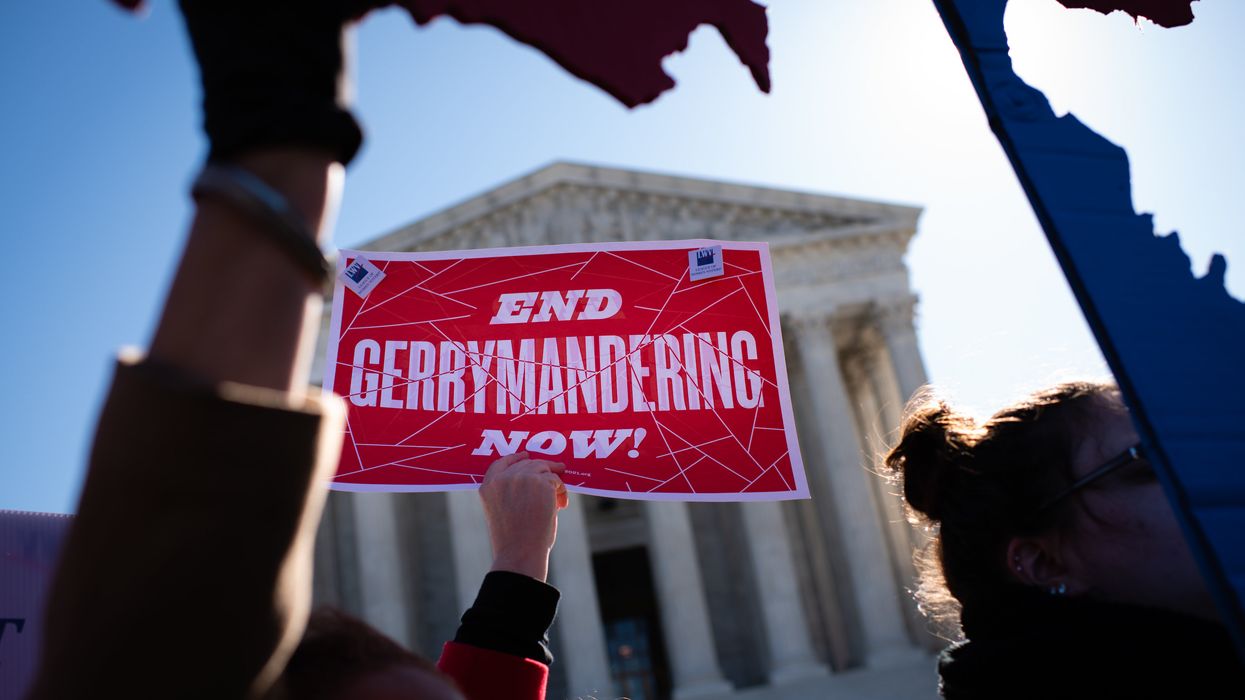The battle over redistricting is intensifying across the country, with bipartisan concern mounting over democratic legitimacy, racial equity, and the urgent need for structural reform. Yet despite years of advocacy from cross-partisan organizations and scholars, the partisan battle over gerrymandering is accelerating, threatening to fracture the very foundation of representative democracy.
The Fulcrum has been watching closely. In our August 8th editorial, we warned of the dilemma now facing the reform movement:
“At The Fulcrum, we’ve consistently amplified voices advocating for structural reforms: eliminating gerrymandering, fixing campaign finance, opening primaries, and advancing ranked-choice voting. The leaders of national reform organizations we regularly feature view these changes not simply as policy adjustments, but as moral imperatives essential to ensuring citizens have a meaningful voice and agency in their governance.”
These reforms rest on a foundational assumption: that we operate within a functioning representative, democratic framework where voters ultimately shape the system rather than being shaped by it. But what happens when that assumption collapses?
In our February editorial, we reaffirmed our commitment to avoid reflexive partisanship while telling the truth about real threats to democratic governance. We acknowledged the complexity of our moment—and the need to distinguish legitimate political debate from norm-breaking behavior that corrodes democratic values. That balance between clarity and complexity, truth and transparency, remains our editorial compass. But as democratic backsliding accelerates, the terrain we navigate grows more precarious.
Now two weeks after our August column the crisis has deepened.
Gerrymandering battles are escalating in at least six states, with Texas and Florida leading a mid-decade redistricting push that critics call a raw power grab. In Texas, Governor Greg Abbott—backed by President Trump—is pursuing a plan to redraw congressional maps to add five Republican seats, bypassing the traditional post-census timeline. Democratic lawmakers fled the state to block the vote, triggering a constitutional standoff and national outrage. The proposed maps crack and pack minority communities, especially in Travis County (Austin), where five districts now dilute Democratic strength.
Meanwhile, Florida’s Republican-controlled legislature is launching a similar effort, despite the state’s Fair Districts Amendment banning partisan gerrymandering. Governor Ron DeSantis and House Speaker Paul Renner have formed a select committee to explore legal avenues for redrawing maps, potentially cementing GOP dominance ahead of 2026.
Other states are watching and preparing to retaliate. Democratic governors in California and New York have pledged to “fight fire with fire,” with plans to redraw their own maps to counter Republican gains. Indiana, Missouri, and South Carolina are also under scrutiny, as GOP leaders consider redistricting maneuvers to expand their congressional foothold. The result is a partisan arms race that threatens to destabilize electoral norms, with lawmakers representing ever-shifting districts and voters losing meaningful representation. Experts warn that without national redistricting standards, the U.S. could enter a cycle of perpetual map warfare undermining democratic accountability and fueling polarization.
And across the country reform leaders are sounding the alarm. As reported in the Fulcrum on August 18th Micahel Walman, President of the Brennan Center for Justice writes
“Voters should choose their politicians, not the other way around. The Texas gerrymander and the partisan war it has triggered signal an extraordinarily dangerous period for American democracy.”
In the writing, Walman calls for national redistricting standards and criticizes both parties for failing to act when they had the chance
Lee Drutman, senior fellow at New America a leading advocate for proportional representation, sees gerrymandering not as the root problem but as a symptom of a deeper structural flaw: the single-member district system. As long as congressional elections are winner-take-all contests in geographically drawn districts, politicians will have strong incentives to manipulate boundaries for partisan gain. Even independent commissions, he argues, are limited when the system itself rewards polarization and geographic sorting. Drutman’s solution is proportional representation which would allow multiple representatives per district and ensure that votes translate more fairly into seats. He frequently cites the Apportionment Act of 1842 as the moment that entrenched single-member districts, setting the stage for today’s redistricting wars. “The only way to end the gerrymandering wars,” he writes, “is proportional representation.”
In the coming weeks, The Fulcrum will be watching with laser focus as this battle intensifies. With President Trump openly backing mid-decade redistricting efforts in states like Texas, Missouri, and Florida, the stakes have escalated beyond partisan maneuvering into a full-blown campaign to consolidate power ahead of the 2026 midterms.
Reform advocates warn that artificially drawn lines are engineered to dilute the voting power of communities of color and entrench incumbents and threaten to turn representative democracy into a rigged game.
As protests erupt nationwide and governors from both parties prepare retaliatory redraws, the specter of “mutually assured gerrymandering” looms large. Citizens fear that Trump’s strategy, bolstered by executive orders and partisan commissions, could lock in minority rule and neuter electoral accountability for decades to come
The Fulcrum will continue to track these developments regularly. As partisan maneuvering intensifies and states test the boundaries of electoral norms, we remain committed to providing clear, nonpartisan coverage that distinguishes structural critique from political reaction. Our editorial compass remains focused on transparency, democratic integrity, and the evolving debate over how best to ensure fair representation in a rapidly shifting landscape.
David Nevins is co-publisher of The Fulcrum and co-founder and board chairman of the Bridge Alliance Education Fund.




















